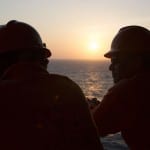Around The Web
Solar farms getting smaller, cheaper and smarter to overcome grid hurdles
 Kanowna solar farm near Moree believed to be the first to use both DC optimisers and centralised DC-coupled inverters to cater for battery storage and get around network connection hurdles.
Kanowna solar farm near Moree believed to be the first to use both DC optimisers and centralised DC-coupled inverters to cater for battery storage and get around network connection hurdles.
The post Solar farms getting smaller, cheaper and smarter to overcome grid hurdles appeared first on RenewEconomy.
Curious Kids: how do people know what the weather will be?
Growers kept busy harvesting Christmas trees and making wooden spoons
Climate change: The massive CO2 emitter you may not know about
Introducing the first carbon neutral certified building
Energy Insiders Podcast: How Texas managed influx of renewables
 Warren Lasher, head of system planning at the ERCOT grid in Texas, joins Energy Insiders to explain how that state is managing the huge influx of renewables - and a final wrap for the year.
Warren Lasher, head of system planning at the ERCOT grid in Texas, joins Energy Insiders to explain how that state is managing the huge influx of renewables - and a final wrap for the year.
The post Energy Insiders Podcast: How Texas managed influx of renewables appeared first on RenewEconomy.
Will a 1.5 degrees target trigger a death spiral for oil and gas companies?
 The dominant assumptions regarding the transition of oil and gas companies are wrong. The evidence suggests it is far more likely they will fail, because they will not cope with the speed of change.
The dominant assumptions regarding the transition of oil and gas companies are wrong. The evidence suggests it is far more likely they will fail, because they will not cope with the speed of change.
The post Will a 1.5 degrees target trigger a death spiral for oil and gas companies? appeared first on RenewEconomy.
All the pumped hydro data needed for NSW’s clean energy transition
 NSW has an embarrassment of riches when it comes to options for pumped hydro and support for a renewables-dominated grid.
NSW has an embarrassment of riches when it comes to options for pumped hydro and support for a renewables-dominated grid.
The post All the pumped hydro data needed for NSW’s clean energy transition appeared first on RenewEconomy.
Countries breathe life into the Paris climate agreement
 At the UN summit in Poland, nearly 200 governments agreed rules to put the historic pact into action, but failed to make strong push for faster emissions cuts
At the UN summit in Poland, nearly 200 governments agreed rules to put the historic pact into action, but failed to make strong push for faster emissions cuts
The post Countries breathe life into the Paris climate agreement appeared first on RenewEconomy.
Harnessing the power of community
How to have yourself a plastic-free Christmas
Make climate crisis top editorial priority, XR campaign urges BBC
Extinction Rebellion group call on BBC to tell ‘full truth about ecological emergency’
Climate campaigners are calling on the BBC to declare a climate emergency and make the issue its top editorial priority.
In a letter published in the Guardian, the new civil disobedience group Extinction Rebellion (XR) says the BBC, “as a respected media voice in the UK, needs to play a key role in enabling the transformative change needed”.
Continue reading...BBC has a key role in tackling the climate emergency
This Friday, Extinction Rebellion will hold a peaceful demonstration to call upon the BBC to convey the severity of the climate and ecological emergency we are experiencing, and the urgent action needed to address this. The BBC, as a respected media voice in the UK, needs to play a key role in enabling the transformative change needed. We are requesting:
1. The director general, Tony Hall, agree to a meeting with a delegation from Extinction Rebellion to discuss how the BBC can tell the full truth on the climate and ecological emergency.
Continue reading...My favourite national park: tell us why it's important to you
Australia’s national parks are under threat due to funding cuts, excess tourism and politics, so we want you to share your favourite park stories
Australians love our national parks: many of us escape the daily grind by walking, hiking and enjoying these protected areas, from the Daintree in Queensland and Uluru-Kata Tjuta in the Northern Territory to Kosciuszko in New South Wales and Cradle Mountain in Tasmania, and everywhere in between.
But national parks are under attack: funding cuts, the weight of tourism and political double standards are jeopardising their future. Our unique biodiversity is threatened by this lack of protection and we are at risk of not meeting the targets we agreed to as a nation in the International Biological Diversity treaty.
Continue reading...Under siege: our commitment to Australia's national parks is waning
The government has committed to protecting our national parks and biodiversity, yet investment is lower and jobs have been slashed
National parks are under siege in Australia. There are more than 500 parks in Australia, covering 28 million hectares or almost 4% of the country, but after decades of steadily adding to our national estate and making progress towards honouring our international commitments to protect biodiverse regions, Australia’s commitment has waned.
Funding has been slashed at both the state and federal levels and the creation of new national parks has stalled.
Continue reading...UN climate accord 'inadequate' and lacks urgency, experts warn
Agreement will fail to halt devastating rise in global temperature, say scientists
The world has been put on notice that its best efforts so far will fail to halt the devastation of climate change, as countries came to a partial agreement at UN talks that failed to match up to the challenges faced.
Leading figures in climate science and economics said much more must be done, and quickly, to stave off the prospect of dangerous levels of global warming.
Continue reading...UK fracking policy faces court challenges
Friends of the Earth granted judicial review it hopes will help alter planning rules
Ministers face a pair of legal challenges to their planning rules on fracking this week, from a national environmental group and the son of fashion designer Vivienne Westwood.
The government used its revamped planning rulebook to tell local authorities in July that they should recognise the benefits of shale gas and facilitate its extraction.
Continue reading...What was agreed at COP24 in Poland and why did it take so long?
Fractious UN climate change talks ended with a deal on putting the Paris agreement into practice – but much else left unresolved
Countries settled on most of the tricky elements of the “rulebook” for putting the 2015 Paris agreement into practice. This includes how governments will measure, report on and verify their emissions-cutting efforts, a key element because it ensures all countries are held to proper standards and find it harder to wriggle out of their commitments.
Continue reading...'We can move forward now': UN climate talks take significant step
Delegates agree ‘rulebook’ for Paris goals, but key questions have been ignored or put off
They lacked the drama, excitement and eventual breakthrough that marked the Paris agreement of 2015, but this year’s UN climate talks produced important steps forward in putting the landmark accord into practice.
After last-minute wrangling over wording, late on Saturday night delegates in Poland finally agreed a text that contains most of the “rulebook” needed to guide countries’ implementation of the Paris goals.
Continue reading...I led the National Park Service. Zinke's resignation leaves lasting damage
Hopes were high for the interior secretary’s tenure. But profiteers and climate deniers quickly changed that
When President Trump’s new secretary of the interior Ryan Zinke rode a horse across the National Mall to the steps of his new office, there was cautious optimism, as a western congressman who professed to idolize Teddy Roosevelt seemed like a solid choice to govern 20% of the land base of the United States.
In the unforgiving milieu of Washington DC, Zinke and the “horse he rode in on” were subjected to withering ridicule. As the 18th director of the National Park Service (NPS), where I oversaw over 400 national parks and the equestrian patrol of the National Mall who accompanied the new secretary, I chalked it up to a publicity stunt.
Continue reading...


